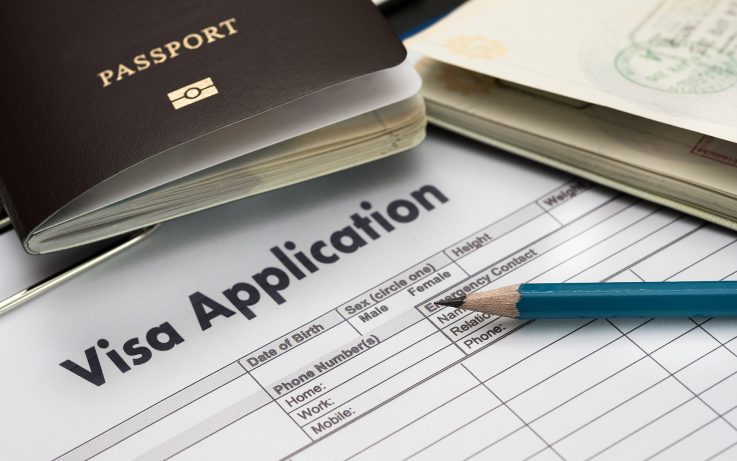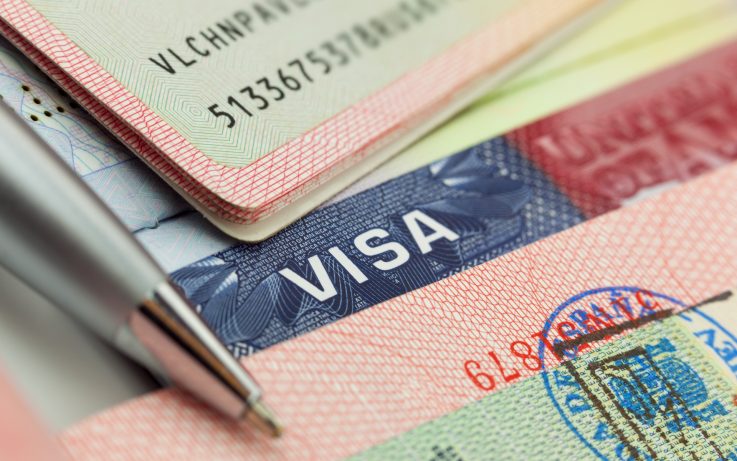What UK business visa to choose if you are a foreign entrepreneur?

The United Kingdom is not only a great place to live but also to do business. Foreign entrepreneurs from all parts of the world choose Great Britain for its booming market, stable economy, flexible taxation system and good image that gives credibility to any UK-registered company.
Immigrants who have nothing to do with business relocate to the UK for several different reasons. They include high living standards, safety, prestigious higher education and good healthcare, to name a few.
Before relocation, however, all foreigners face legal intricacies. So the question is how to follow all legal aspects and relocate to the UK successfully with further residence and citizenship opportunities. If you want to avoid mistakes and go through all the procedures quickly and efficiently, it is better to contact competent advisors with expertise in UK business immigration.
How to choose a UK business visa?
Choosing a required UK business visa presents a major challenge where multiple factors come to play. How much money does an entrepreneur plan to invest? Do they want to invest in a promising start-up or set up their own business? Have they already had a business that they now want to expand globally? Are they going to start everything from scratch or buy a trading UK company? This article outlines possible immigration routes for foreign entrepreneurs who are interested not only in the UK market but also in the country itself as a place to live.
UK Tier 1 Investor visa
UK Tier 1 Investor visa is great for entrepreneurs who have money to invest in British financial assets long-term. The minimum investment is £2,000,000 excluding visa-related costs.
Where can I invest?
There are things you cannot invest in to get a UK Tier 1 Investor visa. One of them is real estate. You can still buy it and rent it out, but it cannot be used to apply for a UK Tier 1 Investor visa, Indefinite Leave to Remain (ILR) or British citizenship.
The Home Office offers an alternative investment option: buying shares in or investing in the equipment of British companies. As an investor, you will not only get the required visa and relocate to the UK but also receive a good passive income if the business you invest in is profitable. After getting ILR, you can sell your shares. If they have increased in price, you will even make a profit.
Requirements for a UK Tier 1 Investor visa
A UK Tier 1 Investor visa is one of the easiest UK business immigration routes. The UK always welcomes investors, so the requirements they have to meet are minimum.
Credentials, entrepreneurial skills or even the knowledge of English are of no relevance. The only requirement that is crucial for this type of business visa is to do with the source of income. You must prove that the funds you invest are legally sourced.
The money can belong to you, your spouse or your civil partner. It is convenient since you and your spouse, for example, can combine your savings to get the required investment amount. Spouses and children can be added to the application. They will also be able to apply for ILR and British citizenship later on.
There are almost no restrictions for foreign investors who relocate to the UK on a UK Tier 1 Investor visa. Unlike other visas that clearly define the type of activity allowed, with a UK Tier 1 Investor visa, the main applicant and their dependants can do whatever they want: get a job, run a business, study, etc.
When can I apply for British passport?
The more you invest the less it takes to become a UK citizen. However, before applying for British citizenship, you will need to get ILR, or settlement.
A UK Tier 1 Investor visa is issued for the period of three years and four months, subject to extension. The table below shows how the amount of the investment influences the time it takes to obtain a UK passport (the relevant period of stay starts when you get your visa and not ILR, so you will be able to apply for citizenship in five or six years):
| Investment | Settlement |
British citizenship |
|
£2,000,000 or more |
5 years |
6 years |
|
£5,000,000 or more |
3 years |
5 years |
|
£10,000,000 or more |
2 years |
5 years |
UK innovator visa
A UK Innovator visa is for entrepreneurs who wish to set up a company in the UK. The minimum investment is £50,000 which is much lower than that of a UK Tier 1 Investor visa. However, the company must be operational: create jobs, bring profit, pay taxes and demonstrate growth and development.
A UK Innovator visa is an offspring of a UK Tier 1 Entrepreneur visa that was abolished in 2019. Now, the visa name suggests that innovative projects have more chances to be approved.
Business project to get a UK innovator visa
To get a UK Innovator visa, your business project must be endorsed by a relevant body that assesses whether your project matches the following characteristics:
- Innovative – your company must comply with the latest requirements and apply innovative business tools;
- Viable – you must prove that you have enough expertise to set up a profitable business, build a functional working system, develop a stable client base and demonstrate your competitive advantage;
- Quality and demand for product or service – your idea should be unique and be unlike anything else in the market while the demand was established by relevant market surveys;
- Scalable – your business project must contain development plans and show that your business is scalable and that you will be able to open new branches and expand your product lineup.
An endorsement letter is the main document that will decide whether an applicant will get a UK Innovator visa. If your visa application is approved, your start-up becomes accountable to the endorsing body and will have to regularly report on its development.
No one expects you to strictly follow your initial business plan. But it is better not to deviate from it a lot.
How much do I need to pay to get a UK innovator visa?
Costs will depend on the amount required to launch a company. The minimum investment is £50,000 but the final cost might be much higher. This should be addressed in your business plan.
If a project requires large investments, several entrepreneurs may combine their efforts. In this case, each must put at least £50,000 into a new business to be able to apply for a UK Innovator visa.
What can I do on a UK Innovator visa?
On a UK Innovator visa, you can work for your own company. And you cannot be employed anywhere else. It is possible to add your spouse and children to the application, but to do this, you must prove that your monthly income or your savings can support your family without applying for public benefits.
A UK Innovator visa also requires at least B2 knowledge of English that must be confirmed by official test results.
When can I get a British passport?
A UK Innovator Visa is issued for three years. You can then extend it or apply for ILR. The latter option is available only if your company is developing successfully. To prove it, two out of seven requirements must be met:
- Initial capital was at least £50,000;
- Client base is constantly expanding;
- Research and development activity or patents;
- Gross revenue for the past year is at least £1,000,000;
- Gross revenue for the past year is at least £500,000 with £100,000 arising from export;
- At least ten jobs are created for UK residents (salary is irrelevant);
- Al least five jobs are created for UK residents with salaries starting from £25,000.
After obtaining ILR, you will be able to apply for British citizenship in two years, so it will take at least five years to get a British passport.
UK Start-up visa
A UK Start-up visa substituted a UK Tier 1 Graduate Entrepreneur visa. This immigration route is similar to a UK Innovator visa, but it is designed for young entrepreneurs. The requirements are practically the same. For example, to get a visa, you must submit your business plan first to an endorser for review regarding its innovativeness, scalability, and competitiveness.
The requirements set for entrepreneurs themselves are less strict. Professional expertise is not required, but professional education or a theoretical understanding of business processes is recommended.
How much does it cost to get a UK Start-up visa?
A UK Start-up visa’s major advantage is that there are no minimum investment requirements. Theoretically, initial capital can be zero. In reality, it is impossible to start a business with no investment, but it’s possible to minimise costs.
Apart from investment into your start-up, you will also have additional visa costs, such as an incorporation fee, health surcharge, etc. If you want to add dependants to the application, you must prove that you can support them financially.
When can I get a British passport?
A UK Start-up Visa is issued for two years and cannot be extended. It means that this is a non-settlement immigration route. To obtain ILR and British citizenship, you will need to switch to a UK Innovator visa. It will take more time to become a UK citizen, but the initial investment will be lower.
UK representative of an overseas business visa
A UK Representative of an Overseas Business visa is for those who already have a company abroad and want to set up a subsidiary in the UK. A top manager who will act as a legal representative of a new subsidiary can relocate to the UK via this immigration route.
Advantages of a UK representative of an overseas business Visa
Unlike UK Innovator and UK Start-up visas, you do not need an endorsement letter for this type of visa. It is still worth submitting a business plan to demonstrate how a UK subsidiary will operate. Some documents are also required from a parent company. The company must operate and make a profit.
As we said, there are no requirements for initial capital, so it will be what you spend on opening a subsidiary.
Challenges of a UK representative of an overseas business visa
The main challenge is that a representative that will come to manage the subsidiary must hold a significant position in the company and at the same time have less than 50% of its shares.
Besides, only one top manager can apply for a visa. That’s why it is also called a UK Sole Representative visa. However, the Home Office has recently announced that there might be some changes to allow several top managers to represent a subsidiary in the UK at once.
When can I get a British passport?
A UK Representative of an Overseas Business visa is issued for three years. If your subsidiary grows, the visa can be extended for another two years. After that, you can apply for ILR and in a year, for British citizenship. Thus, to become a UK citizen, you will have to spend at least six years in the country.
Like on other immigration routes above, you can add dependants to your application and obtain citizenship for your family members as well. Their activity will not be restricted to the UK: they will be able to study, work or set up a business.
Stages of UK business immigration: Indefinite Leave to Remain and Citizenship
To become a British citizen, you must go through all stages of the immigration process and get the required statuses: ILR and then a British passport.
You must stay in the UK and have close ties with it. It applies to investors too.
Indefinite Leave to Remain (ILR)
With a long-term visa, you can stay in the UK for a long period, but your activities will be limited. Depending on the type of visa, you cannot be employed, study, run a business or perform other activities. Indefinite Leave to Remain is free of such restrictions. With an ILR, or settled status, you will have almost the same rights as UK citizens.
To get ILR, you must stay in the UK for three or five years depending on your visa and comply with all the visa requirements. You must spend most of your time in the country. A foreign entrepreneur cannot be away from the UK for more than 180 days in any consecutive 12 months.
Besides, the main applicant and all dependants must pass an English test and the Life in the UK test. This requirement even applies to UK Tier 1 Investor visa holders though initially they were not required to take an English test.
British citizenship
Citizenship is the last chapter in any UK immigration story. A lot of foreigners, however, prefer to stay in the UK with settled status only since it does not restrict them in any way. If you do want to get a UK passport, you can apply for it a year after getting ILR, and after at least five years of staying in the UK. It means that even if you settle under an accelerated route (e.g. a UK Innovator visa or UK Tier 1 Investor visa with at least £5,000,000 of investment) you will be able to apply for citizenship only two or three years later. Anyway, it will still be faster than other visas.
For naturalisation, you must comply with even stricter requirements when it comes to your absences from the UK than for settlement. An applicant must not be away from the UK for more than 450 days during the five years before the application. In the last year, they must not leave the country for longer than 90 days. You must also speak English fluently and pass the Life in the UK test.
Dual citizenship is allowed in the UK, so you will not have to revoke your first citizenship unless it is required by law in your home country.
To sum it up, though the business immigration process may seem transparent, it poses certain challenges for foreigners who have never dealt with immigration before. In this case, it is better to contact legal specialists who have expertise in the immigration field and know about all the intricacies and pitfalls.







